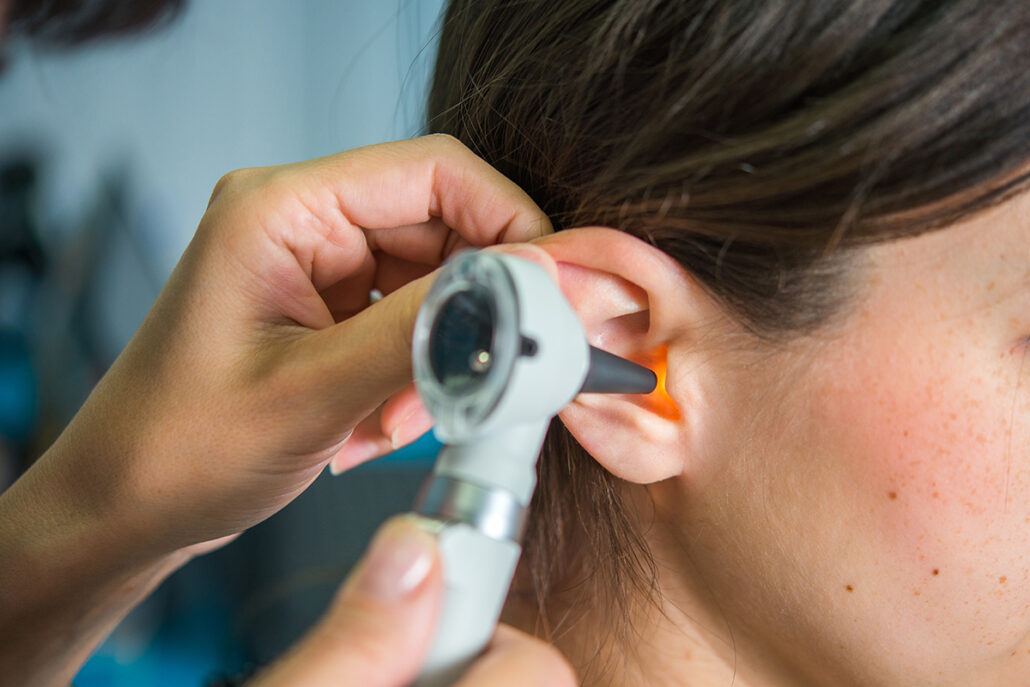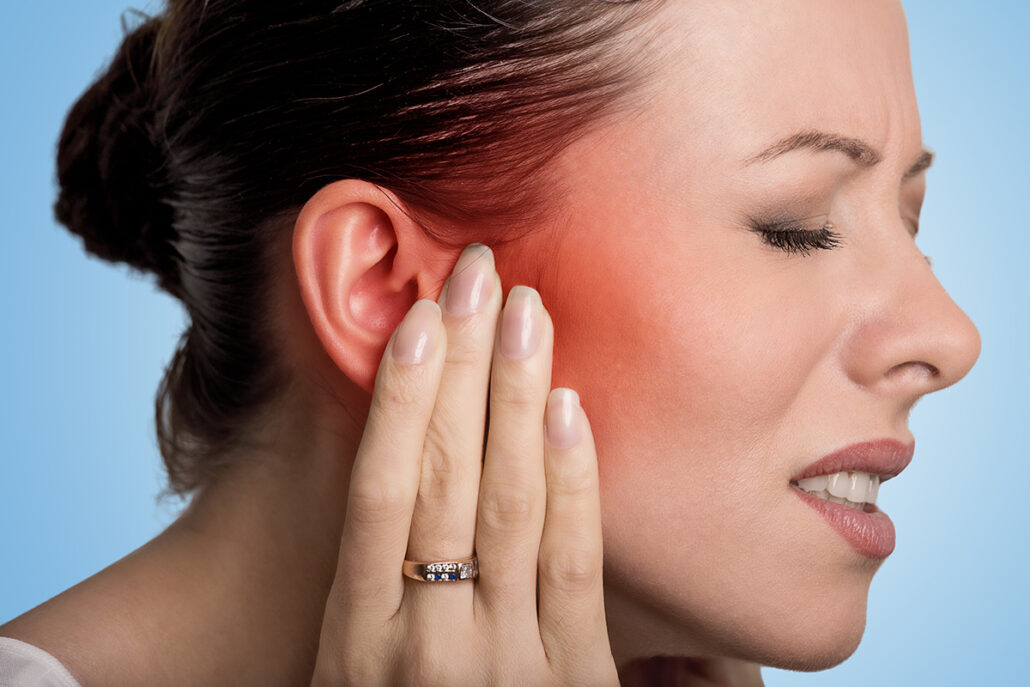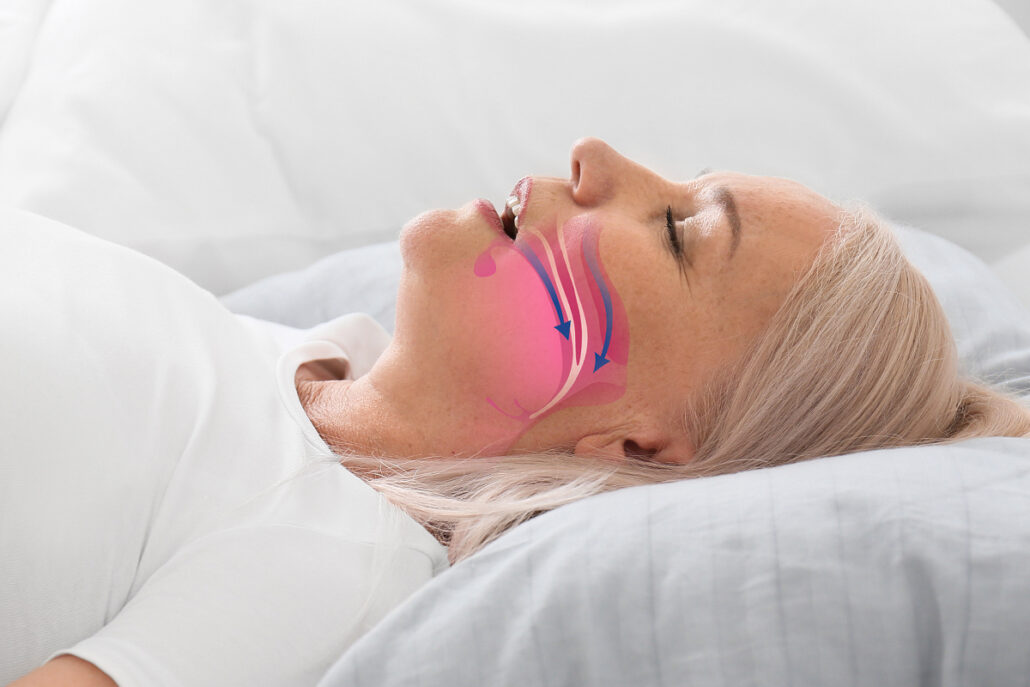Pollen allergies do not just cause sneezing and itchy eyes—they can also affect what you eat. Many people with seasonal allergies experience symptoms when they eat certain fruits, vegetables, and nuts, even if those foods are healthy and fresh. This reaction is often caused by a condition known as oral allergy syndrome (OAS), also called pollen food allergy syndrome (PFAS). It happens when a part of the proteins in some foods are similar to the proteins in pollen. If you have OAS, knowing what grass, ragweed or birch pollen allergy foods to watch out for can help reduce symptoms and protect your health.
At Becker ENT & Allergy, our team of board-certified allergists helps patients across New Jersey and the Philadelphia area understand how their pollen allergies may impact food choices. In this guide, we explain which foods to watch out for, how to tell the difference between mild and severe allergic reactions, and why seeing a specialist is an important step in staying safe.

Key Takeaways About Common ENT Emergencies:
- ENT emergencies can involve issues with the ears, nose, and throat, and must be addressed promptly to avoid complications.
- Common ENT emergencies include nosebleeds, ear infections, foreign bodies in the ear, nose or throat, airway obstructions, and tonsil-related abscesses.
- Quick recognition and treatment of these emergencies can prevent severe complications, including infections, hearing loss, and breathing difficulties.
- First aid plays an essential role in managing ENT emergencies until professional care is available.
- Patients with ENT emergencies should proceed to their nearest Emergency Room in order to ensure prompt, accurate diagnosis and treatment. When appropriate, 911 should be called for assistance.
Common ENT Emergencies
Ear, nose, and throat (ENT) emergencies can range from a minor discomfort to a life-threatening situation. Whether it’s a sudden loss of hearing, bleeding from the nose, or difficulty breathing, it’s important to know how to recognize and manage these emergencies quickly. Seeking professional care can help avoid further complications, including infections and permanent damage to hearing or the airway. In this article, we will explore the some ENT emergencies, their symptoms, and the ways to manage them.
What is an ENT Emergency?
An ENT emergency refers to any urgent medical situation involving the ears, nose, throat, or related structures, like the airway and larynx. These emergencies require immediate medical attention to avoid severe health risks. Common symptoms of ENT emergencies include sudden pain, swelling, bleeding, difficulty breathing, or loss of function (such as hearing loss or a blocked nose). Prompt treatment from a trained provider is crucial to addressing these problems effectively.

Epistaxis (Nosebleeds)
What is Epistaxis?
Nosebleeds, or epistaxis, are a common ENT emergency. They often occur when the blood vessels inside the nose break, causing bleeding. This can be triggered by dry air, injury, allergies, or underlying medical conditions. In severe cases, continuous or recurring nosebleeds can lead to significant blood loss.
How to Recognize It?
The most obvious symptom of epistaxis is visible bleeding from one or both nostrils. You may also feel blood dripping down the back of your throat, especially when lying down. This is a common issue in both children and adults, particularly during dry weather or in environments with low humidity.
First Aid and Clinical Treatment
To manage a nosebleed at home, try pinching the nostrils together for 10-15 minutes while sitting upright. Applying a cold compress to the nose can also help. If the bleeding persists, it’s important to seek medical attention. An ENT doctor may use nasal packing or cauterize the affected blood vessels to stop the bleeding.
Otitis Externa (Swimmer’s Ear)
What is Otitis Externa?
Otitis externa, commonly known as swimmer’s ear, is an outer ear canal infection that occurs when water or bacteria gets trapped in the ear. It can lead to irritation, pain, and swelling. If left untreated, it may cause a more serious infection.

How to Recognize It?
Symptoms of otitis externa include itching inside the ear, redness, pain when touching the ear or moving the jaw, and sometimes fluid drainage. You may also experience a feeling of fullness in the affected ear.
First Aid and Clinical Treatment
To relieve mild pain at home, use over-the-counter ear drops and avoid inserting anything into the ear canal. However, if the pain persists or worsens, seek medical care. An ENT doctor may prescribe antibiotic ear drops or oral antibiotics, and in some cases, the ear canal may need to be cleaned professionally to remove any debris or fluid.

Ruptured Eardrum
What is a Ruptured Eardrum?
A ruptured eardrum occurs when a tear or hole forms in the thin membrane separating the outer ear from the middle ear. This can result from injury, loud noises, infections, or pressure changes (such as during air travel). It often leads to ear pain, drainage, and hearing loss.
How to Recognize It?
Common signs of a ruptured eardrum include a sudden sharp ear pain, followed by a feeling of relief as the pressure is released. You may also notice fluid draining from the ear, and temporary hearing loss in the affected ear.
First Aid and Clinical Treatment
While waiting for medical attention, avoid getting water in the ear. An ENT doctor can evaluate the tear with an otoscope and, in most cases, the eardrum will heal naturally within a few weeks. Severe cases may require surgical intervention to repair the rupture and prevent infections.
Foreign Bodies in the Ear, Nose, or Throat
What Are Foreign Bodies?
Foreign bodies are objects that get lodged in the ear, nose, or throat. This is especially common in young children, who may insert small objects into their noses or ears. These can cause discomfort, pain, and in some cases, infection or airway obstruction.

How to Recognize It?
Symptoms vary depending on where the object is lodged. You may notice a child or adult displaying discomfort, rubbing the ear or nose, or having difficulty breathing or swallowing. There may also be visible signs of swelling or infection in the affected area.
First Aid and Clinical Treatment
If you suspect a foreign body is stuck, try to remain calm. Do not attempt to remove it yourself, as this can push it deeper. Seek prompt medical care from an ENT doctor, who can safely remove the object and assess for any potential injury or infection.

Airway Obstructions
What is an Airway Obstruction?
An airway obstruction occurs when something blocks the throat or windpipe, making it difficult to breathe. This can result from food, objects, or even swelling due to an allergic reaction. It is a life-threatening emergency that requires immediate medical attention.
How to Recognize It?
Signs of an airway obstruction include difficulty breathing, noisy breathing (stridor), wheezing, or the inability to speak. The person may also have cyanosis, or a bluish tint to the lips and face, which is a sign of insufficient oxygen.
First Aid and Clinical Treatment
In cases of choking, performing the Heimlich maneuver may dislodge the object. For severe swelling or blockage, an ENT doctor may administer medications to reduce inflammation or perform an emergency tracheotomy if necessary to establish an airway.
Peritonsillar Abscess
What is a Peritonsillar Abscess?
A peritonsillar abscess is a collection of pus near the tonsils, often resulting from untreated tonsillitis. It can cause severe throat pain, difficulty swallowing, and fever.

How to Recognize It?
Symptoms include swelling on one side of the throat, severe throat pain, difficulty swallowing (dysphagia), and a muffled or altered voice. The pain may also radiate to the ear on the affected side.
First Aid and Clinical Treatment
While waiting for medical attention, cool fluids or over-the-counter pain relievers can help manage symptoms. However, an ENT specialist will often drain the abscess and may prescribe antibiotics to prevent the spread of infection.
Don’t Ignore the Signs – Get Expert ENT Care
Quick treatment prevents complications. Trust Becker ENT & Allergy for fast, effective relief.
Why Prompt Treatment Matters
Delaying treatment for ENT emergencies can lead to complications like infections, hearing loss, airway obstruction, and long-term health issues. For example, untreated otitis externa can develop into a more serious infection, and a ruptured eardrum can lead to permanent hearing damage. Addressing these issues promptly with the help of an experienced ENT specialist ensures the best outcomes for patients.
Why Choose Becker ENT & Allergy?
At Becker ENT & Allergy, we understand the importance of quick, expert care when it comes to ENT emergencies. Our experienced team of ENT specialists is equipped to provide comprehensive care for a variety of urgent issues, including ear infections, nasal obstructions, and throat-related emergencies. With convenient urgent care services available, you can trust that your health is in good hands when time matters most.
First Aid for ENT Emergencies
When an ENT emergency strikes, the right first aid steps can make all the difference. Here are some basic steps to take:
- Nosebleeds: Pinch the nostrils together and lean slightly forward. Apply a cold compress.
- Ear pain or infection: Keep the ear dry, avoid inserting anything into the ear canal, and take pain relievers if needed.
- Airway obstruction: Perform the Heimlich maneuver if choking, and seek emergency medical attention.
- Throat pain: For minor discomfort, try warm salt water gargles or over-the-counter pain medications until medical care is available.
Consult with ENT Experts in New Jersey and Philly
If you’re experiencing any of the symptoms of an ENT emergency, don’t wait—contact Becker ENT & Allergy for immediate care. Our team of specialists is ready to provide diagnosis and treatment to help you feel better as soon as possible.

